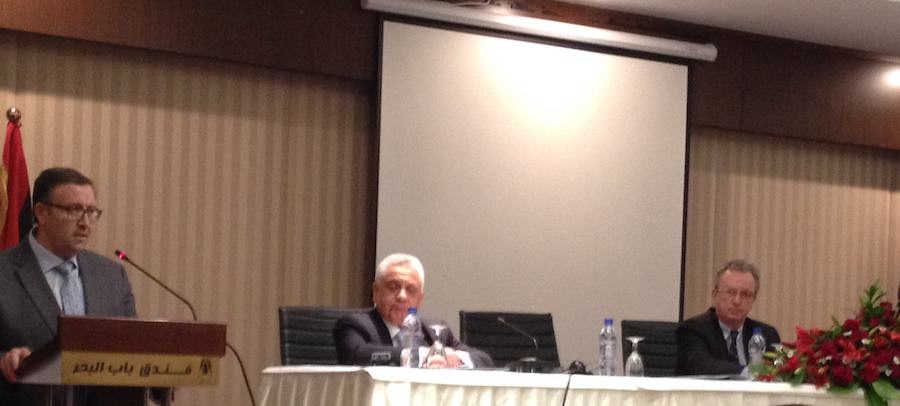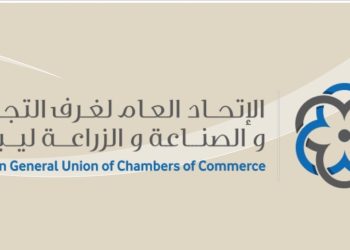By Tom Westcott.

Tripoli, 1 March 2014:
The Central Bank of Libya yesterday celebrated a successful pilot programme on credit risk management with . . .[restrict]the French banking training institute, the Centre de Formation de la Profession Bancaire (CFPB), and its Tunisian equivalent, the Academy of Banking and Finance (ABF).
The training included both male and female participants, 75 percent of whom successfully gained internationally-recognised certificates in credit risk management.
“When we look at our banking sector, one of the biggest challenges is the credit department,” said deputy governor of CBL, Sadiq Abdulkareem. “Because the credit department is the future of our new nation, it needs developing.”
He said that productivity in the credit department was very low at present, with most employees working in traditional ways and ignoring modern methods. Training opportunities, such as the pilot programme with CFPB and ABF, greatly benefitted the banking sector by bringing the credit department up-to-date, he added.
The development of the private sector, in particular, needed a very good and efficiently-run credit department, Abdulkareem said.
The training was launched in September last year with a seminar on managing credit risk. French Ambassador to Libya Antoine Sivan said that a lot had been done since that first experience.
“One of the goals of the revolution was to build a modern state of Libya, including its institutions,” he said. “Building confidence in banking systems is very important, both the confidence of Libyans as well as foreign parties.”
Echoing Abdulkareem’s comments, Sivan said that confidence in efficient and effective banking systems was particularly important in enhancing the private sector. He said that France was keen to help Libyan banking institutions, saying: “We have a high-level and efficient system in France and we are ready to share.”
Salem Bessaoud from ABF said that the training had been well-received by the participants, who appreciated learning new approaches. This, in itself, was a good incentive for all parties involved to take the programme to the next level, he said, with the potential for other topics to be covered in future training partnerships.
The programme was financed by the French government and run under the auspices of CBL. [/restrict]








